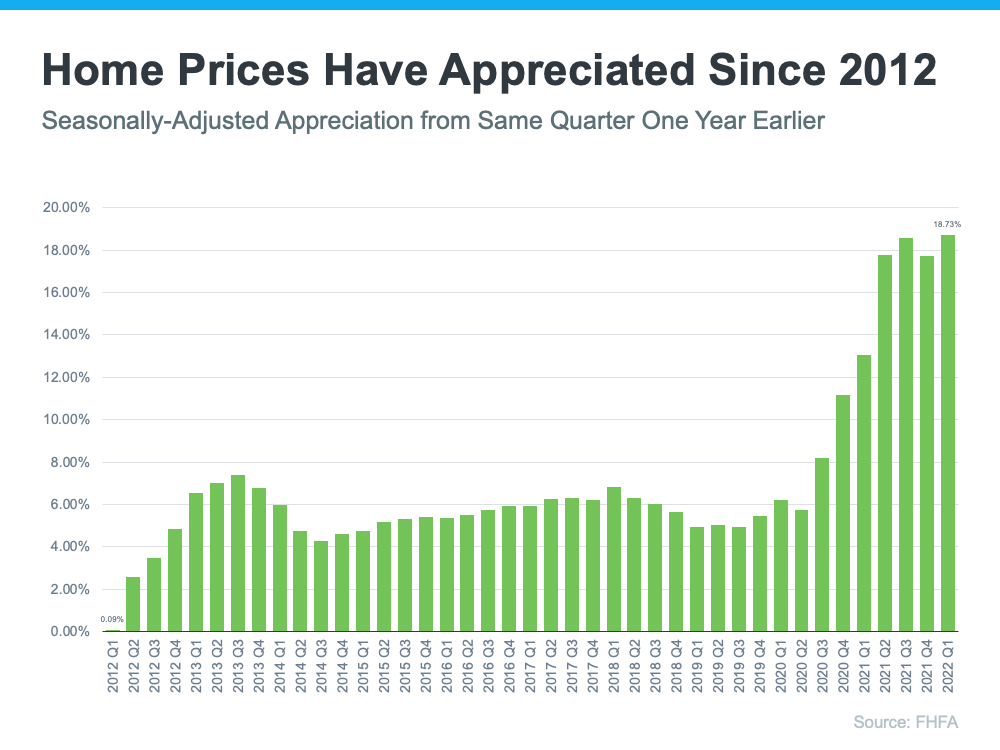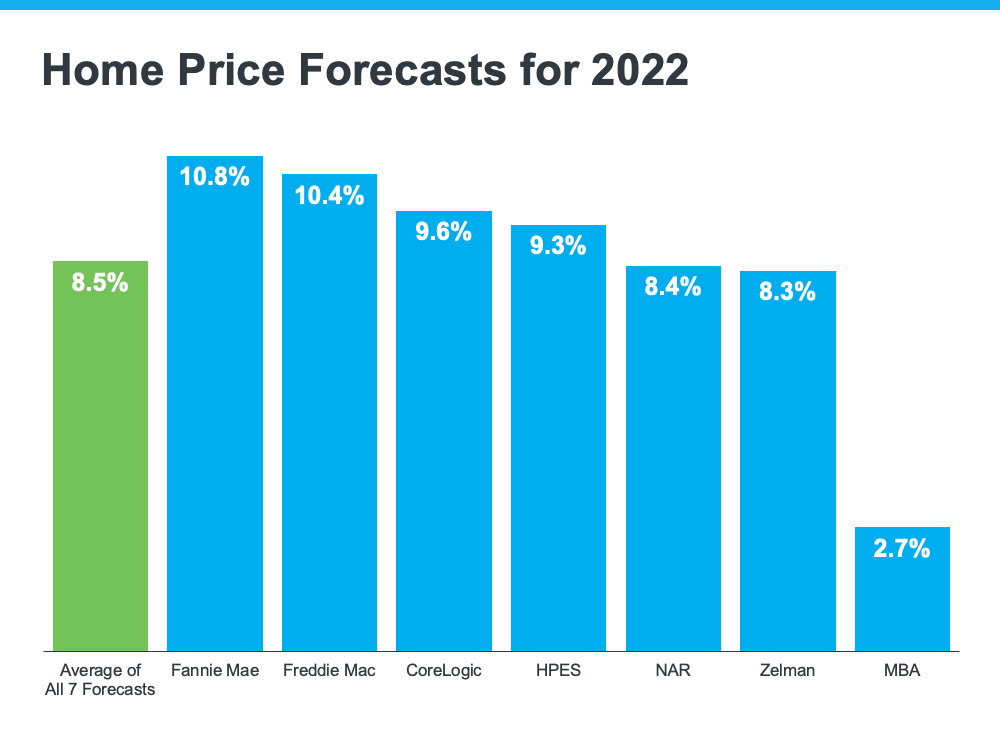BY LISA IANNUCCI
https://www.apartmenttherapy.com/things-everyone-should-know-about-home-268076
[Apartment Therapy]We independently select these products—if you buy from one of our links, we may earn a commission. All prices were accurate at the time of publishing.
Congratulations, you’re a homeowner! (Or you’re a renter! Which also deserves celebration!) There’s so much to learn and explore about your new digs, but it’s important to get some basics squared away before you play. Your home will have countless surprises for you over the years—and the right time to learn how to deal with them is not when you’re smack dab in the middle of a crisis. From some emergency preparedness to basic troubleshooting, these are 50 things everyone should know about their home. While it’s not a comprehensive guide, it’s a great place to start:
1. Your exit plan
First and foremost, one of the most important things you should know about your home is how to get out of it. In case of a fire or another emergency, how are you going to get to safety? (Every sleeping area should have at least one exit identified, either a door or a window that leads directly to the exterior.) What about for natural disasters? You should have a solid exit plan for all scenarios—Ready.gov has great planning resources for both domestic and external emergencies.
2. How your smoke detectors work
According to the National Fire Protection Association, almost three out of five home fire deaths result from fires in properties without working smoke alarms. The best way to prevent this? Check to make sure your smoke detectors are working monthly.
Had them for awhile? It may be time for a replacement. According to Welmoed Sisson, home inspector at Inspections by Bob in Frederick, Maryland, and author of “101 Things You Don’t Want In Your Home,” they should be replaced every ten years.
Want to know more about your smoke detectors? Here are all your questions, answered.
3. How your carbon monoxide detectors work
According to the Consumer Product Safety Commission, more than 150 people in the United States die annually from accidental carbon monoxide poisoning. While you’re checking your smoke detectors, give your CO detectors a good press, too. Many devices will have an end-of-life alarm, but many, including those by First Alert, recommend replacing them after five years.
4. How to use your fire extinguisher
Sure, you may have received a fire extinguisher from your parents as a first apartment housewarming gift, but do you actually know to use it? Peruse the National Fire Protection Association’s guide for a quick how-to. Also, if you’ve never used it (other than as a doorstop), Allstate has a nifty blog post about how to effectively inspect your extinguisher.
5. If you’re at risk for radon
When you were going through the home inspection process, it’s likely your home was tested for radon exposure—aka what happens after the natural breakdown of uranium in rock, soil, and water. However, if you live in an older home in the Northeast, Southern Appalachia, the Midwest, or the Northern Plains, you should test for radon if you haven’t in awhile or if you’ve just done a major home renovation. The New York State Department of Health recommends every couple five years in different seasons.
Want to learn more about radon, its dangers, and how to test your home? Check out our handy guide.
6. How to change your locks
One of the first things experts recommend doing when moving in a new house is changing the locks—but why spend the additional money hiring a locksmith if you can easily do it yourself? (Here’s an easy DIY from This Old House!) If you don’t want to change all the locks themselves (cause that’s still pricey!) but still want the added security reassurance, you can also use a re-keying kit, which runs about $9 (but is a little more difficult to install than an entire new unit).
7. How to change your garage access information
Here’s a tip: Default isn’t safe. Take a cue from Jill Schafer, an agent with Kentwood Real Estate in Denver, Colorado, and learn how to change your garage keypad stat.
8. How to spot (or smell!) mold—and what to do with it
The CDC says that whenever you spot mold on a hard surface, you should deal with it immediately. However, some molds can require more intensive removal. One in particular is Stachybotrys chartarum (aka toxic black mold) and it grows wherever water or moisture shouldn’t be. Though it’s black, green, or gray, chances are you’re going to smell it before you see it since since it’s usually stuck in the pores of water-damaged drywall, carpet, or other flooring. Most of the time, a surface cleaning won’t do anything—you’re going to have to get rid of the materials entirely and address what was causing water damage in the first place.
9. How to deal with pests
Speaking of living things in your home: You should know what pests are common in your area and potentially may encounter in your home. From insects, like silverfish and even—god forbid—bed bugs, to bigger uninvited guests, like mice or other wild animals, you should know what to do if you see one as well as ways to prevent an infestation.
10. Where the main electric shut off is—and how to turn it off
Generally, it’s good to locate where your breaker box is (and have it appropriately labeled).
“It may be in the main panel in the basement, but in some houses it’s in the garage or outside near the electric meter,” says Sisson.
While you’re most likely to interact with it after you trip a circuit breaker or blow a fuse, you should also know how to turn off your home’s electricity flow for maintenance and safety reasons. If you’re installing something electric (i.e. a light fixture or any appliance that’s more complicated than just plugging something in), you’ll need to turn off the individual circuit breaker. If there’s a local fire, too, (i.e. if your microwave catches fire) or if there are sparks coming out of your outlet—you should run to the breaker, too.
11. Where the main water shut-off is—and how to turn it off
According to Mr. Rooter Plumbing, your main water shut-off valve is most likely located close to your water heater and has a bright red handle. A strong clockwise turn is all it takes to turn it off.
But why should you know how to turn it off? According to Ben Creamer, co-founder and managing broker of Downtown Realty Company in Chicago, Illinois, quickly turning off the water in a plumbing emergency will alleviate potential water damage in the home.
“A cracked pipe, a leaky shower, or a broken sprinkler head can all cause serious and costly damage if you don’t stop the water flow quickly,” Creamer says.
Shutting off your water, too, is an important step in preventing frozen pipes from bursting. If you live in a cold weather climate, you should know where your hose bib (your outside faucet) valve is and turn it off for the winter (as well as drain any water in the pipes). “Below-freezing winter temperatures can wreak havoc on pipes and exterior fixtures, causing cracks and breakage that might not materialize until the spring thaw,” Creamer says. “I’ve seen outdoor water faucets break at the wall and lawns flood from cracked underground pipes because the water system wasn’t cleared properly before winter’s first freeze.
12. Where the gas shut-offs are
For safety reasons, you shouldn’t try to shut off your gas main on your own—leave that to a professional, reports Katie Johnston at the Boston Globe. And if you smell gas in your home, leave and call 911 immediately.
However, if you need to turn off a gas-powered appliance, like a stove or water heater (for installation or maintenance purposes), look behind the machine for the valve and turn clockwise. For more detailed instructions, check out SoCalGas’s how-to.
13. How your home is ventilated
There are multiple ways to ventilate a home—and they all require their own type of upkeep. To prevent harmful pollutants and/or unwanted moisture to accumulate and wreak havoc on your health and home, make sure all exhaust vents are unobstructed and all mechanical systems are serviced yearly.
The nuts and bolts
Numbers and metrics are specific to your home.
14. Your experts
If a pipe breaks or the furnace poops out, who will you call? Keep a list of recommended plumbers, carpenters, electricians, contractors, handymen, and exterminators on your refrigerator to call in a moment’s notice.
15. The lifespan of all the components of your home, their warranties, and their maintenance schedules
Fun fact: Nothing in your home lasts forever—and even if something is made to last for a very, very long time, it’ll require regular upkeep to ensure you squeeze out every last potential year of your appliances and building materials. Knowing how old everything is in your home, the last time everything was serviced, if it’s still under warranty, and any major issues in the past will help you plan out just when you’ll need to perform maintenance (and save up for it.)
“Get a sense for the remaining lifespan of the roof, furnace, air conditioning condenser, and other mechanicals,” says Brian Davis, a real estate investor and co-founder of SparkRental.com. “These are expensive to replace, and homeowners should know if they need to expect a $15,000 roof bill next year or ten years from now.”
16. Where your wall studs are
For anything weighing over a pound, use a stud finder to drill or hammer into the studs. Just $7 can save you from expensive damaged drywall, says Davis.
17. What type of insulation you have
“It’s important to understand the type of insulation that runs throughout your home,” said Bridget Rooney, a home renovation and safety expert. While all insulation types have their own benefits, risks, and maintenance routines, some are more dangerous than others. For example, if your home was built before the 1980s, it’s possible that your home has asbestos insulation. Asbestos is not dangerous if it’s contained, but if “friable” (easily crumbled by hand) and its fibers or dust are inhaled, it can cause abestosis, lung cancer, and mesothelioma. This is a common risk in older homes and, surprisingly, according to the Mesothelioma and Asbestos Awareness Center, there are no federal guidelines for home inspections around asbestos, and many inspectors don’t check. However, in many states, sellers are required to disclose any known asbestos products in the home.
“Replacing this insulation sooner rather than later with a non-toxic alternative such as paper insulation will ensure your home is a healthy place for many years to come,” Rooney says.
18. Your home’s electrical load/capacity
Want to add another appliance or make a modernization update? Make sure your circuit can handle the additional load so you’re not constantly running down to reset your breaker, says Allison Chiaramonte of Warburg Realty in New York City.
“These simple updates are pointless if there isn’t enough power,” says Allison Chiaramonte of Warburg Realty in New York City. “Adding more electric can be very costly so know this before you plan any sort of updates or purchase a home.”
The Spruce has a helpful article on how to calculate your home’s electrical capacity yourself, or you can hire an electrician for a comprehensive analysis.
19. Your water pressure
You can check your water pressure using a pressure gauge from a home improvement store. (This $6 one is top-rated on Amazon as well.) According to Mr. Rooter Plumbing, an ideal water pressure reading is between 45 and 55 psi. Any higher means you risk overloading your pipes and hoses, which can result in flooding. Any lower means a disappointing shower. You can easily fix any problems in pressure by installing and tightening/loosening a regulator. If it’s a problem directly from the municipal system, you can add a water pressure booster—but they’re somewhat pricey.
20. Your proper light bulb wattage
“Overlamping, or using a light bulb with wattage too high for a given outlet, can easily result in a home fire,” said Craig Gjelsten, vice president of operations at Rainbow International. “Simply locate the proper wattage on each fixture outlet. If the fixture is unmarked, stay under 60 watts to be safe. Avoid using [compact fluorescent lamps (CFLs) in any lighting unit where the base of the bulb is enclosed by the fixture, such as with track and recessed lighting.” Instead, Gjelsten recommends a cooler option, such as LED.
Additionally, make sure all of your light bulbs are the same type and wattage—this is a common staging trick as uneven lighting can make a space appear smaller.
Basic troubleshooting
21. How to shut off your toilet
Look, shit happens. But don’t let your bowl runneth over onto your sparkling clean floor just because your tank won’t stop running. Turning off your toilet water valve (it’s the silver almond-shaped handle right under or behind the toilet) will stop messes before they happen.
22. How to stop a dripping faucet
That plinky leaky faucet is not only driving you crazy, but it’s costing you money. Learn how to take off the faucet and replace the rubber washer—here’s an easy how-to.
23. How to unclog a sink drain
Forget those hazardous chemicals. Instead, turn off the water, place a bucket underneath the sink and unscrew the U shaped pipe underneath. Most likely, what’s causing the clog is in there.
24. How to unclog a shower drain
Slow shower? Try one of these 10 methods for how to unclog a drain before calling the plumber.
25. Where your water heater is, its capacity, and how to flush it out
Your home should be a no-cold shower zone—so you should know how much hot water your heater can contain. And step one in enacting that rule is knowing where your water heater is to check its size, but also in case of any on-the-ground troubleshooting (Spoiler alert: It’s usually tucked away somewhere and likely around the other utility hubs.) And while we’re talking about water heaters, remember that yours needs to be flushed every year. Sisson says you can do that using the faucet at the base.
Looking for your water softener? It shouldn’t be that far away from the heater!
26. What type of waste system you have, how it works (and where your main-line clean-out is)
The closer you live to an urban center, the more likely you are to have a direct connection from your home to a municipal sewer system. All pipes in your home most likely connect to the city system via a main-line, which can occasionally clog (and cause sewage water to seep up from floor drain. Yuck!) Thankfully, there’s a clean-out—usually outside the home and close to the foundation—that can easily solve problems. However, if that clean-out is blocked, the problem becomes harder and more expensive to fix.
If you’re in a more rural area, you may be dealing with a septic tank. Aaron Hendon of Christine & Company of Keller Williams in Seattle says there are many different designs of tanks and each has its own needs and ways to care for it. Hopefully you won’t be dealing with it all that often, but for emergency situations, you should know where in your yard your system and tank is buried. Not sure how to figure that out? According to FloHawks Plumbing and Septic in the Pacific Northwest, system diagrams may have been included as part of your home inspection, but you can also use country records to find the “as-builts” for your property (they usually contain the diagrams as well.)
27. Which air filter your HVAC system uses
While changing your filter every month may be overdoing it for those without pets or allergies, you should at least change it seasonally to ensure your AC isn’t working overtime. But these filters aren’t a one-size-fits all deal. Marla Mock, vice president of operations at Aire Serv, a Neighborly company, says you can figure out the right filter size by looking at the existing filter or consulting your HVAC manual.
“Write this number down to ensure you get the proper size,” she says. “Having the correct size increases effectiveness and helps lower your electricity bill.”
28. How to open and close your fireplace flue
If you’re lucky enough to have a fireplace—and use it for more than just decoration—you should know how to open and close your fireplace flue to reduce the risk of carbon monoxide buildup, says Roxanne Little, chief executive officer of HAFKAR Solutions in Atlanta, Georgia. She also recommends getting it (and your chimney, if you have one) cleaned and serviced at least annually.
29. How to clean your dryer vent ductwork
According to the U.S. Fire Administration, there are an estimated annual 2,900 fires, 5 deaths, and 100 and $35 million in property loss injuries due to clothes dryer fires every year. Yes, much of this is due to not cleaning off the lint catcher after every load, but did you know it’s also important to clean out your dryer vent ductwork every year too? Remove the hose behind the dryer, and take a brush and vacuum to remove any lint pileup. Not only will it reduce your chance of fire, but it will improve your dryer’s energy efficiency, too.
30. How to patch a window screen
Have a hole just big enough in your screen for a bug to crawl through? You can use clear nail polish to easily patch them right up. Bigger holes can be repaired with sewing, patches, or with a duct tape-like adhesive.
31. How to replace a circuit breaker fuse
Sometimes your fuse won’t have to be reset—but actually has to be replaced. Here’s the easy (and safe!) way to replace a circuit breaker fuse by yourself.
32. How to replace a light switch
Whether it’s broken or just kind of gross, installing a light switch is easier than you think it is. (And so is installing a dimmer!)
33. How to replace an electrical outlet
Having one outlet that just doesn’t work, is too loose, or just doesn’t look nice isn’t something you have to live with. And, quite frankly, it’s pretty easy to fix! Here, how to replace an electrical outlet.
34. How to seal up drafts
It may be an important step in winterizing, but covering up any poorly-insulated areas will lower your cooling bills in the summer, too. “As structures shift and settle over time, insulation, caulking, and other protective materials slowly lose their protective powers,” says Larry Patterson, franchise owner of Glass Doctor, a Neighborly Company. Here’s a full guide to insulating your entire home against drafts.
35. How to take off (and reinstall) your shower head
Your shower may be spotless—but, chances are, there’s one thing you haven’t cleaned in awhile: The shower head itself. At least once a year, you should remove it and give it a good cleaning. Or, while you’re at it, upgrade to an entirely new (and more luxurious) head, too.
36. How to care for your hardwood floors
Keep those hardwood floors as beautiful as they are today. According to the National Wood Flooring Association, you shouldn’t use water on them when the floor gets dirty. Instead, start cleaning your hardwood floors by using a dry cloth to promptly mop up spills and use wood-friendly cleaners on a monthly basis.
37. What your countertop materials are made of
Countertops can look like one thing and actually be another—which spells trouble when it comes time to clean and perform maintenance. “Natural stone that is proud, like marble, needs to be sealed annually and cleaned with a solution that specifically formulated to not harm the stone,” says Rainey Richardson, of Rainey Richardson Interiors in Houston, Texas. “Other materials like quartz and Neolith that are composites require much less maintenance.
38. How to clean a gutter
Be careful, but you should get up there and get out all the gook and the leaves and sticks. A clogged gutter can cause damage to your roof and leaks inside the walls. Here’s an easy guide to cleaning your gutters.
39. Where your manuals are
Gone are the days where you’d have to keep a zip-lock bag full of the user manuals for your toaster, fridge, and washing machine. Today, Schafer says you can find most of them online—just make sure to download and save a copies to the Cloud (may we suggest a dedicated folder?) so you always have access to them.
Contextual information
How your home relates to your neighborhood and the city where you live
40. Where your block/lot map is
“The map shows right-of-ways for utility companies and the county,” says Richardson. “This is important when you want to add improvements like a deck, fencing, an outdoor kitchen, or a swimming pool.”
41. Know local permitting ordinance requirements
Take a trip over to your local building department. “Learn the ordinance requirements so that any future additions or modifications are not the source of upset or extra expense,” said Hendon. “Height restrictions, setbacks, and building codes can change and you want to be clear that any future plans are allowed.”
42. When waste pick-up is (and what you can leave out)
Not only do different areas have their different days, but what can be left out as garbage, recycling, and compost (and how it should be presented) can vary wildly as well. Check with your local sanitation department to get the low-down and avoid any pricey fines.
43. Your neighbor’s contact information
We all have to look out for each other! Have your neighbors contact information on file in case of an emergency (or simply to invite them over for dinner one evening!)
44. Non-emergency numbers
911 should be kept for emergencies only. Use this number for all non-urgent matters—and only if you can’t resolve the issue yourself.
45. The noise curfew
Summer parties are fun—but your neighbors won’t appreciate your speakers blasting until all hours of the night. (And I’m sure you won’t like if a neighbor is mowing the lawn too early, either!)
46. The nearest hospital, 24/7 emergency clinic, and vet
It’s a great thing to know in case of an emergency. (It might be worth checking to see which is the closest ER that accepts your insurance, as well.)
47. Your polling place
Voting is your civic duty—locate where you need to be on election day.
48. Your elected representatives
It’s important to know who is doing the work for you and your community (and if they’re doing a good job.) Want to become a more informed citizen? Set a Google alert for their names.
49. The nearest donation center
There’s no reason to throw out old furniture or clothes when you can donate it—and often when someone will swing by to pick it up! Locate your nearest donation center (like Goodwill or the Salvation Army) and research what they can and can’t accept.
50. Who services your local utilities
Who provides internet, electricity, gas, and water in your area—and how can you contact them in an emergency?


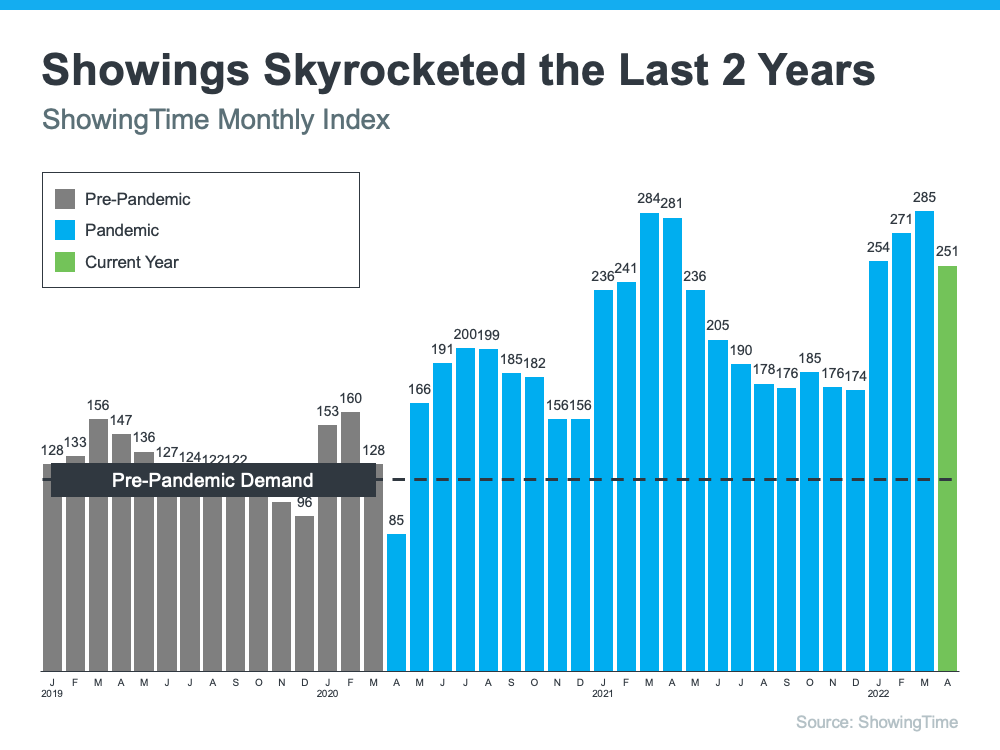
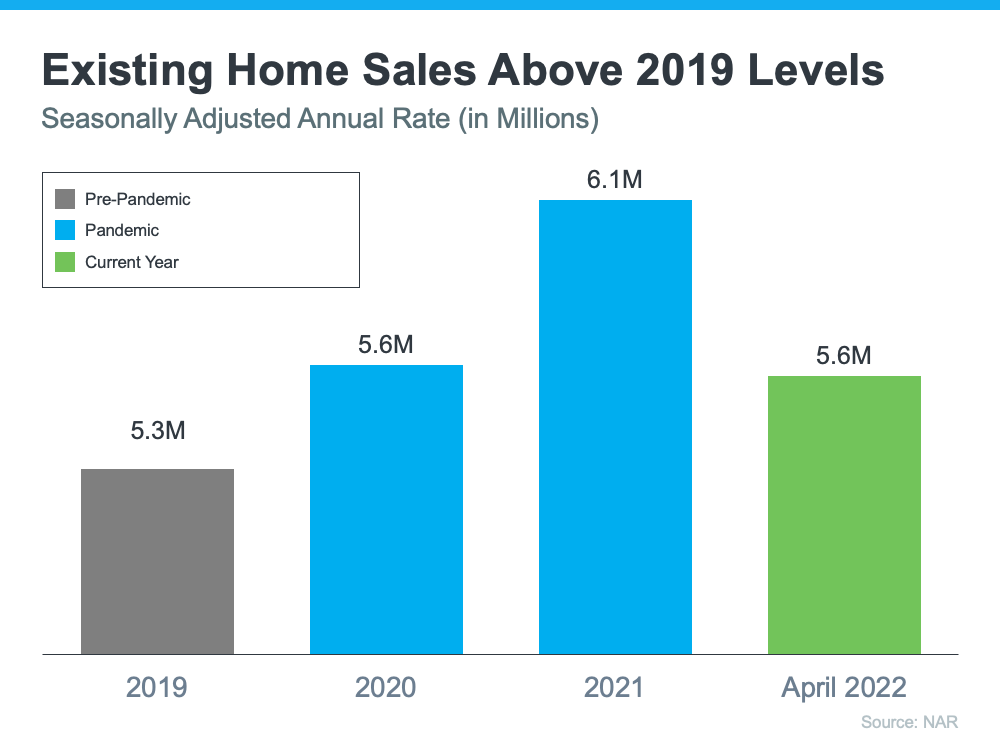


![The Top Reasons To Own Your Home [INFOGRAPHIC] | MyKCM](https://files.mykcm.com/2022/06/09112013/20220603-MEM-1-1046x2276.png)

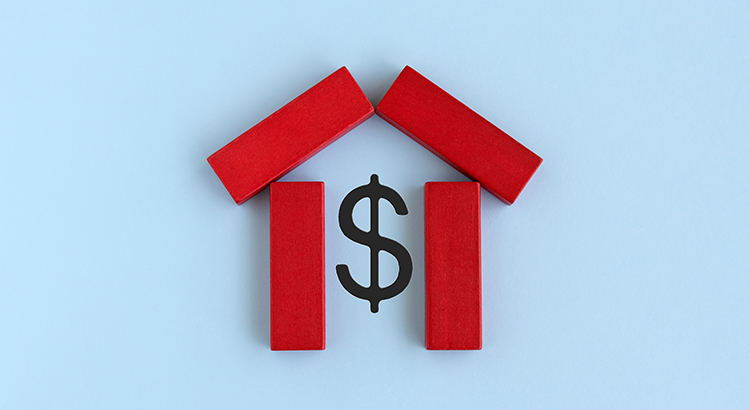
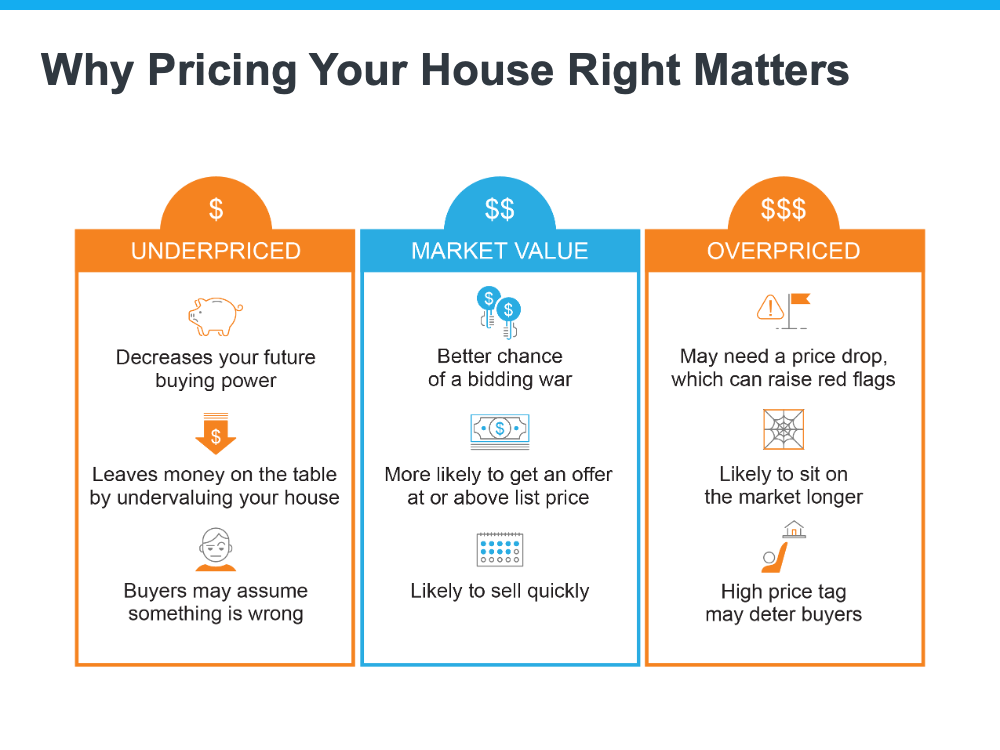
![History Proves Recession Doesn’t Equal a Housing Crisis [INFOGRAPHIC] | MyKCM](https://files.mykcm.com/2022/06/02165354/20220603-MEM-2-1046x1949.png)


